Harris Farm Markets is taking on Coles and Woolworths in the $90 billion grocery war
THIS family-run business with a cult following is taking on Coles and Woolworths in the battle for Australia’s $90 billion grocery market.
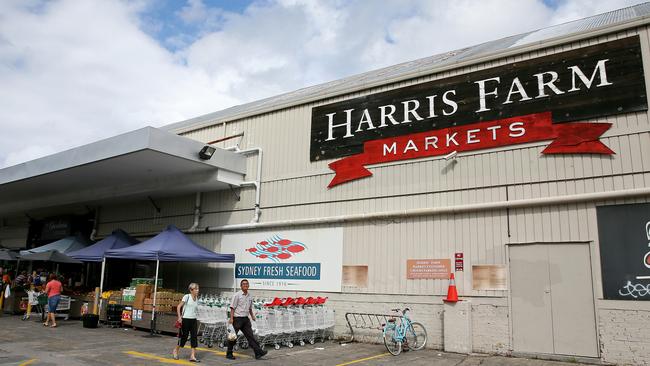
IT’S the family-owned business that has stood the test of time to become a cult brand among high-end grocery shoppers.
While Harris Farm Markets might be tiny compared to the major supermarkets, the independent chain is giving Coles and Woolworths a run for their money.
Its stores were offering free fruit to kids long before the initiative was seen at Woolies, and its “imperfect picks” aisle takes up substantial floor space, putting the retail giant’s “odd bunch” basket — launched six months later — to shame, winning over customers concerned about supermarket waste.
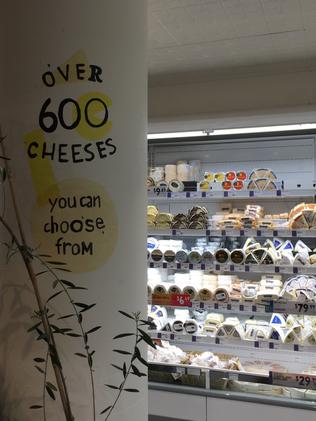
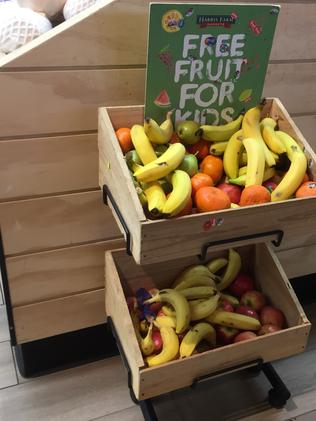
Shoppers who frequent Harris Farm’s 26 stores across NSW rave about the chain, praising the quality and range of its produce in five-star online reviews.
Its new flagship store at Westfield Bondi Junction houses a Salt Meats Cheese and Bread & Butter Project bakery, along with a “milk bar” featuring “single herd milk” on tap, with a new farm featured each month.
The privately-owned company does not release its sales data, but Harris Farm is believed to be turning over an amount in the high tens of millions or more each year.
Meanwhile, Woolworths’ $20 million copycat Thomas Dux chain has been dying a slow death over the past two years, whittled down from 11 to just four stores — which are now being converted to Woolies Metro outlets.
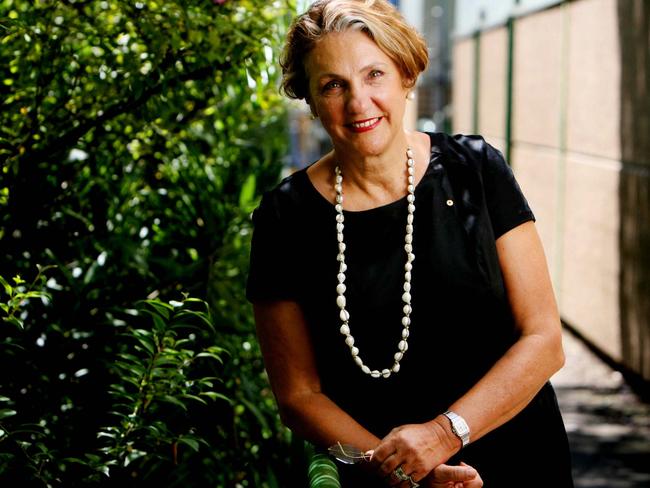
But while its success gives hope to any small business trying to compete with an ASX-listed retail giant, Harris Farm’s rise was not guaranteed — as its co-founder and chairwoman Catherine Harris AO told news.com.au at the Australia-Israel Chamber of Commerce lunch in Sydney on Thursday.
“We ended up going broke in the eighties,” Ms Harris said. “We ran out of money and we brought in private equity investors to buy half of our business then, unfortunately, they went broke.”
The Harrises tried to salvage the business, borrowing from the bank to keep the extra stores trading. But, with interest rates at 17 per cent, it was a “fatal” move.
“Finally, we went up to the bankers with our hands in the air and said ‘we can’t do it’,” Ms Harris said.
“We worked with them to sell all the businesses, and scaled back to three. A couple of our friends bought some of the shops with us in partnership, and that’s how we started again.”
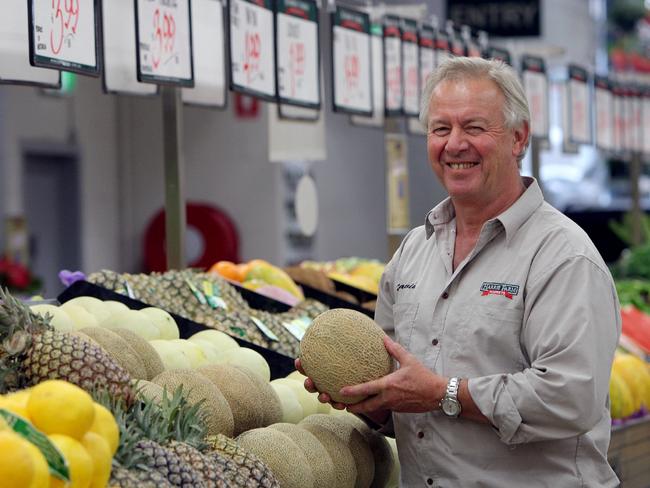
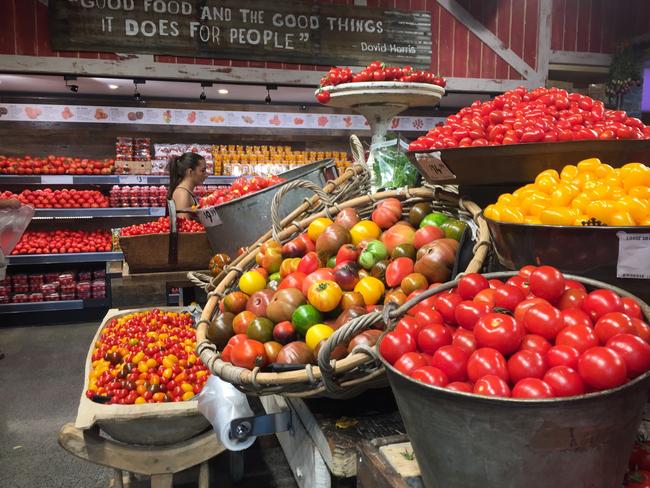
Ms Harris and her husband, both the children of entrepreneurs, started Harris Farm with a single roadside market in Villawood in 1971, right after graduating from university.
“David said to his father ‘what am I going to do?’ and he said ‘son, make sure it’s something the big guys don’t do well, that it’s not too much capital to get into — and make sure it’s a cash business,” she quipped, prompting laughter from the 500-strong audience.
Ms Harris, formidable presence in corporate Australia who sits on a number of high-profile boards, honed her business acumen at Grace Brothers before becoming the financial mind behind the family venture.
But her contribution was not highly valued by the investors who came on board in the 1980s.
“I think they thought I was making tea,” she said of her first meeting with the private equity backers.
“They said ‘oh, your wife’s on the payroll’ and David said ‘she has just done the negotiations with Macquarie Bank.’”
The money men told Mr Harris “it would be better if she didn’t work in the business,” she recollected; “So, I quit.”
She left for a position as the Director of Affirmative Action Agency, only returning after the near-miss that almost spelled the end for Harris Farm.
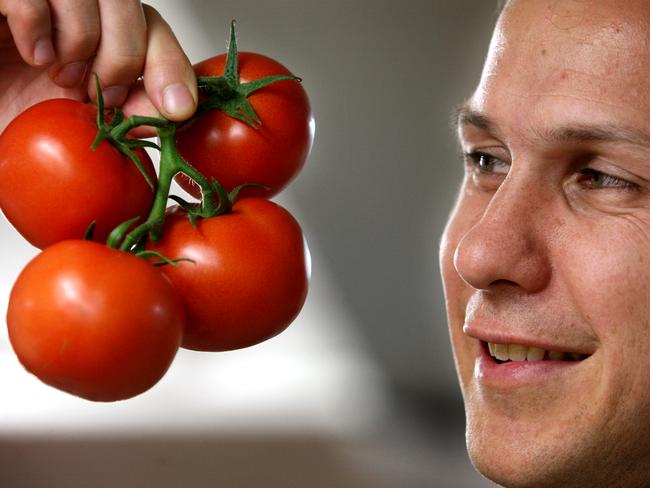
These days, the day-to-day running of Harris Farm Markets rests with three of the Harrises’ five sons as co-CEOs — a succession plan that many decried as “crazy”.
“The rule is, if two of them agree and one of them disagrees, they have to convince the other son to do it,” Ms Harris said, adding that the brothers had been put through personal development courses to ensure they could get on with one another.
Asked about the secret of Harris Farm’s success, she had two answers: “It’s all about the product, and the other thing is detail.”
“Retail is detail,” she chimed, while acknowledging that times were tough in the industry.
“We have a whole raft of people who seriously work 24/7. David and I are supposed to have retired, and he would still spend four hours a day on the phone to farmers, to the markets, early in the morning — even though we’ve got seven buyers in the markets, which is probably more than Coles and Woolies.”
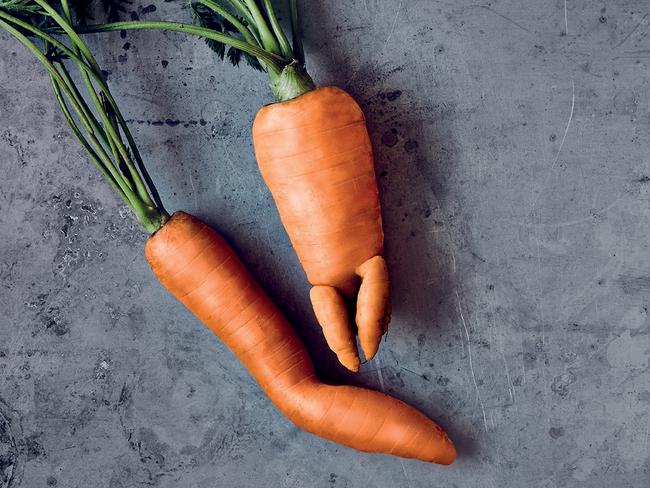
Harris Farm has made a number of bold moves in the name of ethical retail, from ditching $1 milk to backing calls for a statewide ban on plastic bags.
“It’s tough because consumers don’t want to pay for plastic bags, but if you work all together and you stick to your values that’s what’s important,” Ms Harris said.
“I suppose that’s the difference between privately owned and publicly owned companies.”
She swears by listening to customers, learning from past mistakes and “being true to your values”.
One lesson learned decades go was the danger of adopting new technology too early, after ploughing an enormous amount of capital into cash registers that weighed produce at the till.
“It nearly sent us broke,” she said.
“David worked tirelessly with IBM. We knew more about our customers than anyone else in Australia and what they were buying. But it was expensive.”
These days, she keeps her finger on the pulse of consumer sentiment by monitoring what Australians are putting in their baskets.
“We used to notice the change very early because people would stop buying avocados,” Ms Harris said.
“I called it the avocado index. We’ve got other products that are fitting that category now — and we are not seeing that at the moment. The avos are still flying out the door, but maybe that’s our market.”




